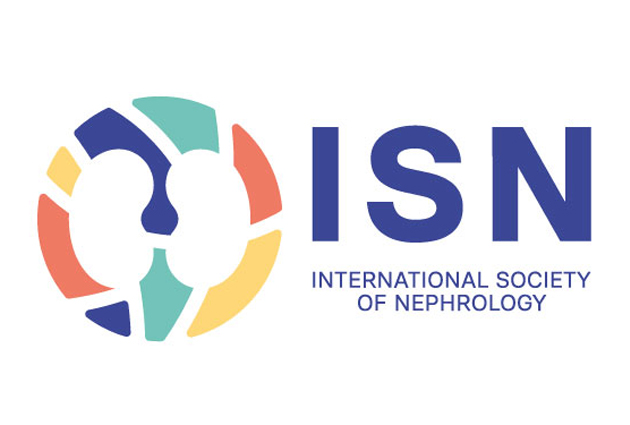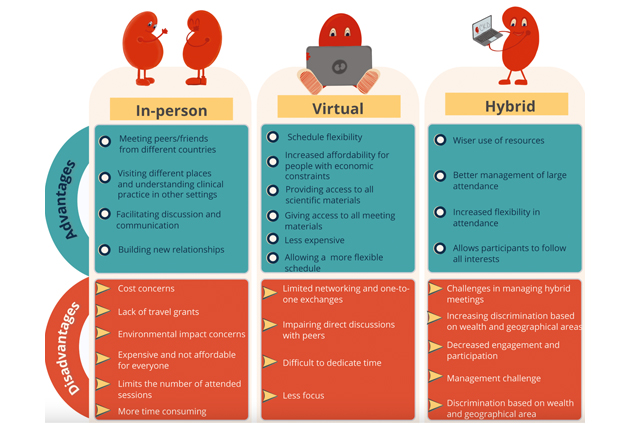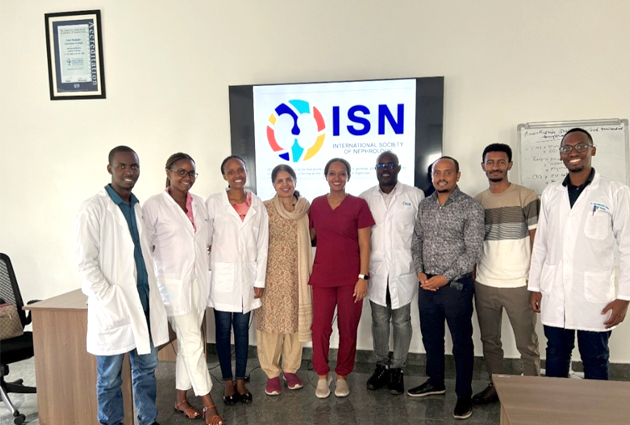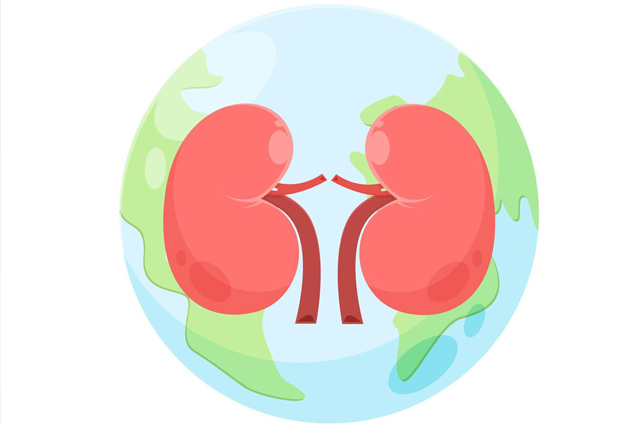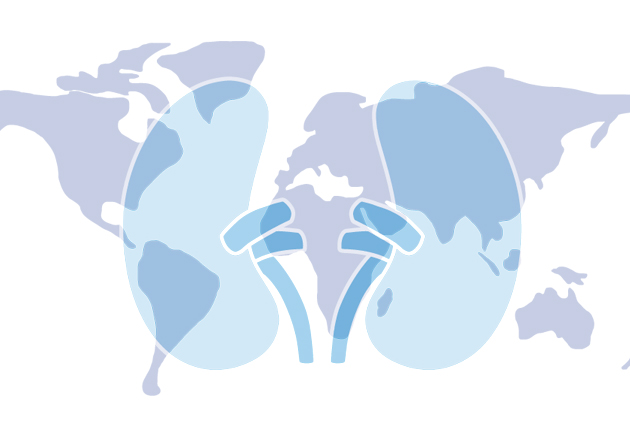Kidney Patients are Neglected in Clinical Trials

PRESS RELEASE
July 9, 2019
Kidney Patients are Neglected in Clinical Trials
The exclusion of patients with kidney diseases from clinical trials remains an unsolved problem that hinders optimal care of these patients. Over 850 million people suffer from kidney diseases worldwide, a number which signifies epidemic proportions, yet these patients are still ignored by investigators and initiators of clinical trials in all medical fields – and are thus excluded from clinical trials. ASN, ERA-EDTA and ISN, collaboratively aim to bring about a paradigm change in medical research and have launched an information campaign to that end.
Kidney diseases affect 850 million people worldwide, a figure twice as high as that of diabetes. Yet patients with chronic kidney disease (CKD) are still being excluded from clinical trials. This gives rise to severe problems, because many beneficial therapies cannot be authorised by regulatory authorities for this subgroup of patient, this means that the therapies in question cannot be prescribed for CKD patients. It is crucial, however, that CKD patients be eligible for new treatments, especially in the fields of diabetes, cardiovascular disease, cancer, and liver disease.
CKD is bidirectionally linked to cardiovascular disease, in that CKD engenders a high risk of cardiovascular complications, while heart disease may induce or aggravate CKD. CKD is also bidirectionally linked to neoplasia because, regardless of other factors, cancers or treatments targeting cancers may engender CKD, while CKD may predispose to cancer. Furthermore, there is a strong relationship between CKD and diabetes: over a third of all dialysis patients have suffered from diabetes for a long time, and their need for dialysis treatment results from the fact that diabetes has damaged the kidneys (a condition called diabetic nephropathy). As a public health epidemic, CKD patients require innovative therapies. It is highly problematic, therefore, if CKD patients cannot benefit from innovative therapies for diabetes, cancer or cardiovascular diseases.
Since 1964 the ERA EDTA maintains a Registry of Dialysis and Transplantation in Europe. Starting about 10 years ago, this Registry has extended its research to pre-dialysis CKD by establishing a consortium of existing CKD cohorts in Europe and in 2007 provided expert advice to the European commission by contributing to the European Global Health Report by putting in focus the CKD epidemic. In recent years the ERA EDTA has directly funded clinical trials in renal diseases and in dialysis patients.
‘The fact of the matter is that many innovative treatments fail to reach our patients’, explains Professor Carmine Zoccali, President of the European Renal Association – European Dialysis and Transplant Association (ERA-EDTA). ‘Let’s take SGLT inhibitors, a new group of antidiabetic drugs, as an example. We know from studies that these substances may protect kidney function, but they have not been tested in CKD patients with an eGFR below 30 ml/min. This means that kidney patients are excluded from therapies that might slow down the progression of CKD.’
When it comes to treatment of other illnesses and/or comorbidities, CKD patients should also have the same right to receive the best possible treatment as any other patients. However, the truth is that many new therapies are not tested on this subgroup, which means that CKD patients are unable to benefit from promising therapies. The International Society of Nephrology charged the research community with enrolling 30% of CKD patients by 2030. By encouraging the inclusion of CKD patients in high-quality clinical trials we can ensure they receive equal opportunity to receive evidence-based prevention and treatment of the disease. ‘It is a fact that the efficacy and the safety of treatments tested on patients without CKD cannot be assumed in CKD patients, and similarly that withholding treatment due to the presence of CKD may significantly and unfairly disadvantage those affected’, explains Professor David Harris, Past-President of the International Society of Nephrology. ‘We need studies that include CKD patients.’
The Kidney Health Initiative, the American Society of Nephrology’s public-private partnership with the US Food and Drug Administration, addresses this issue through its “Overcoming Barriers to Including Kidney Disease Patients in Cardiovascular Trials”. The project aims to understand the barriers to involving patients with kidney diseases into cardiovascular trials, with a focus on patients with advanced chronic kidney disease (stage 4) and end-stage renal diseases and identify strategies to overcome these challenges. The workgroup intends to submit their findings to a peer-reviewed medical journal in Summer 2019.
‘It is time for a change in clinical research practice’, confirms Professor Mark D. Okusa, Past-President of the American Society of Nephrology (ASN). ‘The already large and growing group of kidney patients cannot be ignored any longer in clinical trials.’ This is the reason why ASN (https://www.asn-online.org ), ERA-EDTA (http://web.era-edta.org ) and ISN (https://www.theisn.org ) have collaboratively launched an information campaign that aims to bring about this paradigm change.
Press Contact:
ERA-EDTA PRESS OFFICE
Dr. Bettina Albers
Jakobstrasse 38
99423 Weimar
Germany
Tel. +49 3643/ 7764-23
Fax +49 3643/ 7764-52
press@era-edta.org
ASN Press Office
Christine Feheley
(202) 640-4638
cfeheley@asn-online.org






